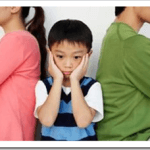Tips for Re-bonding with Children for Pa...
By Rosalind Sedacca, CCT Children can easily and subtly be influenced by both parents during and after divorce. Sometimes the influence is intentional. Other times parents may not be aware of how they are manipulating their children’s affection and allegiance toward themselves and away from their other parent. Either way, the damage for children can be significant, especially in regards to maintaining a loving connection with both parents when the divorce is over. Here’s some sound advice for parents who feel targeted for alienation and want to re-establish or keep a healthy parent-child relationship: Keep in contact with your children in every possible way. Use video, texts, email and other technology to stay in touch, even on the most basic level. Maintain your personal power regarding scheduling activities and contact with the children. Don’t passively enable your kids or your ex to dictate terms and conditions. Create fun times worth













